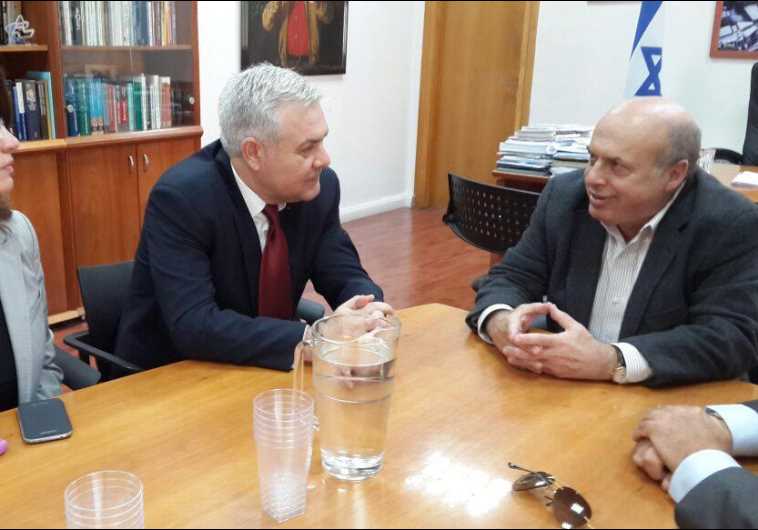Romania looks to Israel in dealing with its diaspora
Romania, in recent years, has made significant strides in facing its own wartime record and admitting guilt for past sins.
 Jewish Agency Chairman Natan Sharansky and Angel Tîlvăr, Minister Delegate of Romanians Abroad(photo credit: COURTESY NATAN SHARANSKY)
Jewish Agency Chairman Natan Sharansky and Angel Tîlvăr, Minister Delegate of Romanians Abroad(photo credit: COURTESY NATAN SHARANSKY)